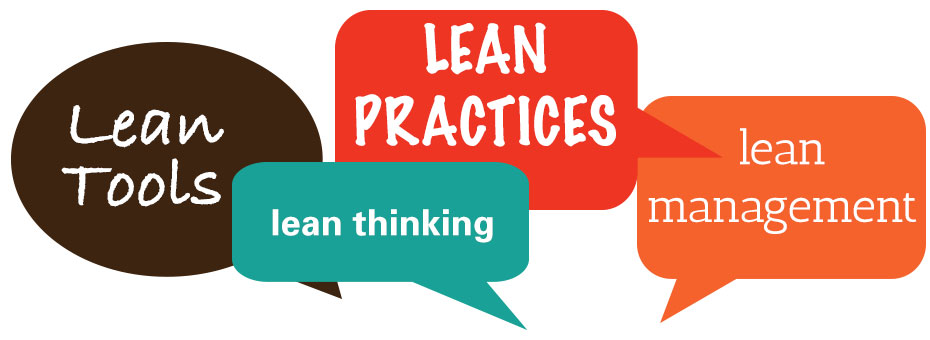Charles Taylor, writing in The Language Animal, asserts, “that language introduces new meanings in our world.” It follows that the language we use to understand lean has invented a new way of being and working in the world.
Lean practitioners identify, invent and test improvements through problem-solving conversations that depend upon them sharing a common, perceptible language. A conversation we had in the fall of 2016 looked at whether lean was constrained by a deliberate analytical and rational way of thinking, and whether we were blinded to some new possibilities for understanding lean by focusing on it as a purely scientific discipline. We discovered there are non-scientific perspectives worth considering, and that these new perspectives could contain clues leading to a wider and longer embracing of lean practices.
We met for three days with a group of artists to learn through experiences, conversations, and reflection their perspective on lean thinking and practices. Helping us in this effort were John Shook, Deb McGee, Karyn Ross, David Verble, Niklas Modig, Robert Martichenko and Bryan Wahl. We anticipated that as most of the work investigating lean has been through scientific thinking that an artistic perspective would yield important insights that have been invisible, or at least not very deeply explored, to students of lean. This choice complemented an observation from Tom’s work in the building industry, wherein architects as design professionals tend to be most resistant to lean practices.
Three valuable Insights were gleaned from the artists’ perspectives. We write about these insights because they are important to helping people understand the value of lean practices at an emotional level, where lasting decisions are made. The first, lean is a creative ethic, is discussed in a previous post. The second, lean has its roots in spirituality, was discussed in a second post.
We consider this third insight a revelation into why some of us readily accept lean practices as advantageous, and why most other people simply don’t understand its relevance. Lean is a practice in search of a language.
Superficial Language
If you uttered an incredulous gasp at that statement, be assured so did we. Lean has a rich vocabulary and a large array of tools that function to structure productive conversations. When English fails us we have Japanese words available. We were surprised that after three days of being immersed in lean vocabulary to hear the artists tell us that lean is in search of language.
Language is important. Far more than simply describing things in the world as if they existed apart from language, our expressions are the way we invent future possibilities. There are plenty of words to describe lean thinking, lean tools, lean practices, lean management, and lean philosophy. Conversations are not limited to words. Our gestures and shared use of lean tools also help us to assess, coordinate actions, tell stories, develop trust and shape our moods. We can be forgiven for believing that lean has a very rich vocabulary forming a comprehensive language.
We now understand that the artists were telling us that the language of lean still lacks the comprehensiveness needed to appeal to a wider audience. Despite an extensive vocabulary, the words are insufficient to form a language in itself – perhaps much like a vocabulary of only nouns without verbs would have limited use, the current lean vocabulary is missing a dynamic element needed to be relevant to a wider audience.
The current lean vocabulary is missing a dynamic element needed to be relevant to a wider audience.Consider Ludwig Wittgenstein’s 1915 statement that “the limits of my language mean the limits of my world.” Facts do not exist outside of language, and if our language is incomplete then so is our understanding of the world. It may be that as lean practitioners we should not be concerned with identifying facts as much as with building a clearer understanding of the world, and how the work we seek to improve fits into that world. We need to build a balanced vocabulary.
Understanding the language of art – whether painting, literature, music or theater – is a path toward expanding our understanding of the world. The language of art is itself dynamic. Artists do more than observe and interpret the outside world – through a process of self-discovery they invent a world and share that world with others. Arguably this creative process requires sharper observational skills and deeper levels of reflection and adjustment. These are capabilities to which the lean ethic aspires, and suggests a roadmap for lean to break away from a science-centric model of work. The suggestion is not that we discard the language of instrumental reason, but that we integrate it with the language of art, and in the process develop a more holistic and much healthier approach to work and life.
Having learned that lean is a creative ethic; lean has its roots in spirituality; and lean is a practice in search of a language; what does the lean community do with these insights?
In our second post, we argued for the need to practice daily awareness of how your core identity connects to the purpose of your enterprise. It should be a part of your daily coaching practice. The reason for this is that lean is hard, or as was observed in its initial interpretation, fragile. Feeling this connection of your identity to enterprise purpose provides the energy required to meet the daily demands of lean practices.
We also need to appreciate that while the scientific method plays an important role in lean, the scientific method is one part of a broader, holistic approach toward human work requiring an understanding of how people connect to each other emotionally, how we make commitments to each other through story, and how we view daily work in the context of a broader quest serving humanity.





